The COVID-19 crisis has changed the way we approach data privacy and email security as the transition to working from home has been accompanied by a growing surge of Coronavirus themed phishing scams and spoofed websites used to distribute malware or lure victims into providing confidential information.
In addition to these inbound threats, businesses must deal with leaks of confidential data transmitted via email and other outbound threats while meeting the latest data privacy and compliance laws.
Protecting Your Business with Security Gateway for Email and MDaemon Email Server
Both MDaemon and Security Gateway are packed with features to help protect businesses from spam, malware and other email-borne threats, including the latest COVID-19 related phishing scams, and whether your business uses MDaemon or Security Gateway, you’ve got total control to provide the most secure email to suit your business needs. And that holds true for our hosted email and secure email gateway services as well as on-premise deployments, so to help businesses meet the challenges of securing online communications as employees work from home, I’d like to share a few email security best practices.
Best Practices for Secure Email with Security Gateway
Use Data Leak Prevention to prevent sensitive data from being sent via email
As health care facilities, doctors, and mental health professionals transition to online appointments, personal data such as Social Security numbers, diagnoses and treatment details are more likely to be shared online, and this can present privacy and compliance implications for your business. To help prevent this sensitive information from being sent via email, Security Gateway includes Data Leak Prevention to detect email messages containing sensitive content and then reject them, encrypt them, or place them in the administrative quarantine for review.
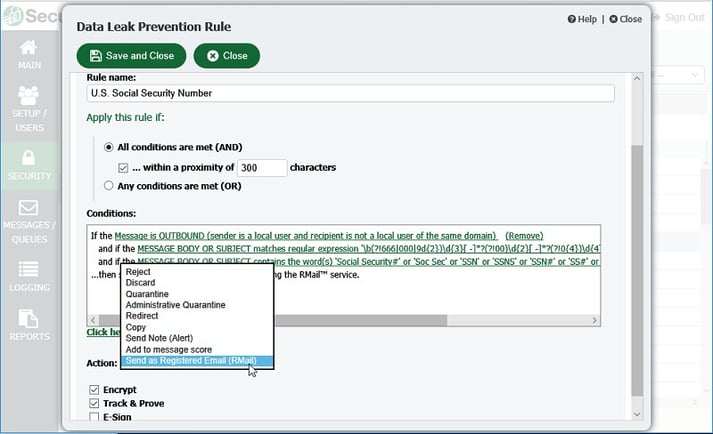
Block spam, viruses, ransomware, and more
Security Gateway can also help protect against the latest COVID-19 related spam and virus outbreaks with its dual antivirus engines and Zero-Hour Virus Outbreak Protection. Administrators have complete control over their anti-spam and antivirus settings, including quarantine configuration and reporting tools to help ensure junk email gets blocked while legitimate email gets delivered.
.png?width=713&name=Antispam-Antivirus-Security-Gateway-For-Email%20(1).png)
Follow email archiving and retention best practices
During these uncertain times, businesses may also need to re-visit their email compliance and archiving requirements. Security Gateway’s built-in archiving includes retention policies and legal hold to help businesses meet current regulations or respond to litigation requests.
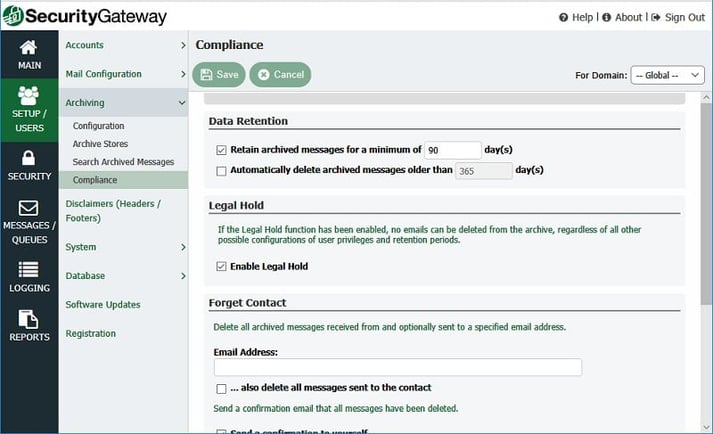
Best Practices for Secure Email with MDaemon Email Server
Use content filtering and email encryption
To help prevent confidential data sent via email from getting into the wrong hands. MDaemon administrators can create content filtering rules to encrypt messages containing sensitive data using OpenPGP email encryption.
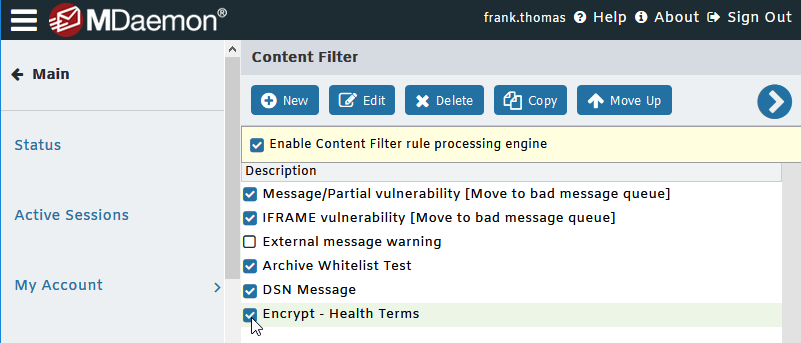
Use MDaemon AntiVirus
MDaemon AntiVirus with Zero-Hour Virus Outbreak Protection helps protect business from the latest COVID-19 related spam and malware outbreaks. It uses Recurrent Pattern Detection technology to identify the latest spam and malware within minutes (or even seconds) of an outbreak.
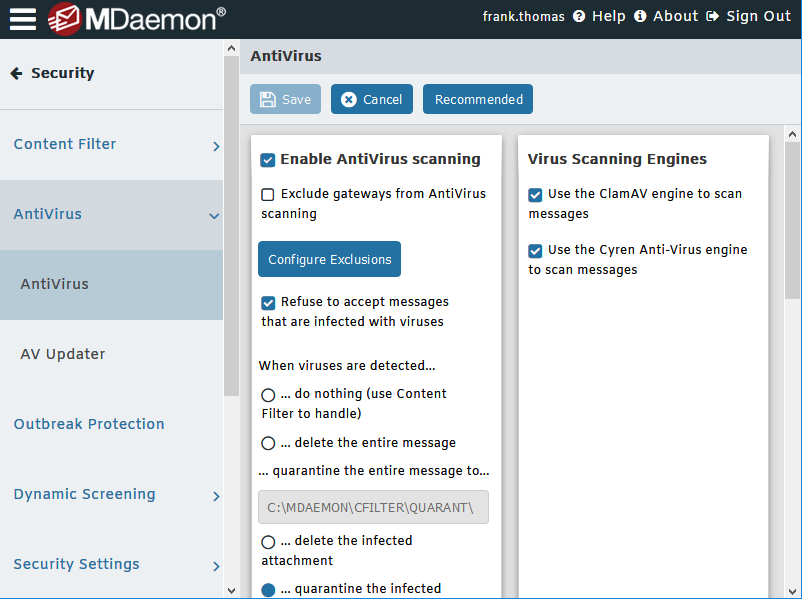
Use secure connections to send and receive email
We always recommend using SSL and TLS for secure email messaging. Administrators can take things a step further by requiring users to configure their email clients to send email over a secure, encrypted connection using port 587 instead of the standard port 25, which does not use SSL.
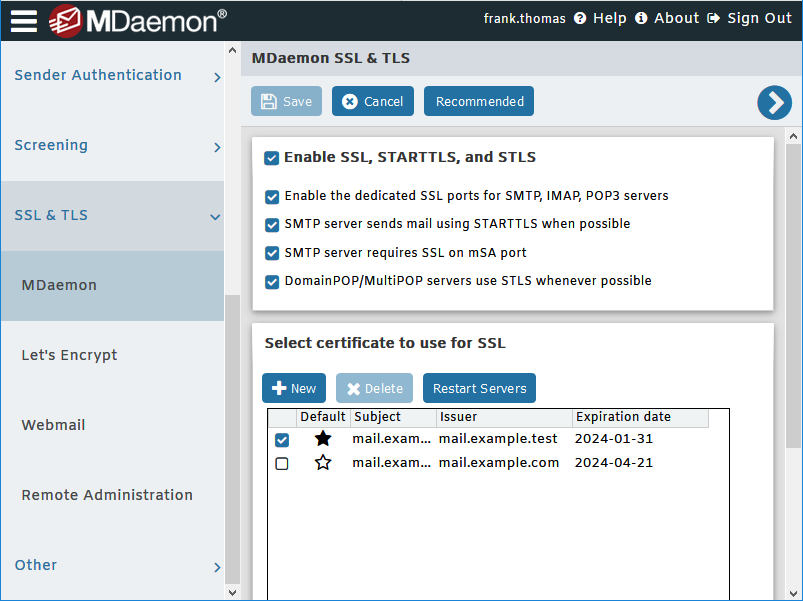
Use secure connections for instant messaging
A remote workforce will likely be using MDaemon Instant Messenger as well, so to help ensure these communications are kept private, MDaemon’s XMPP server supports communication over the secure SSL port for both XMPP and HTTPS connections.
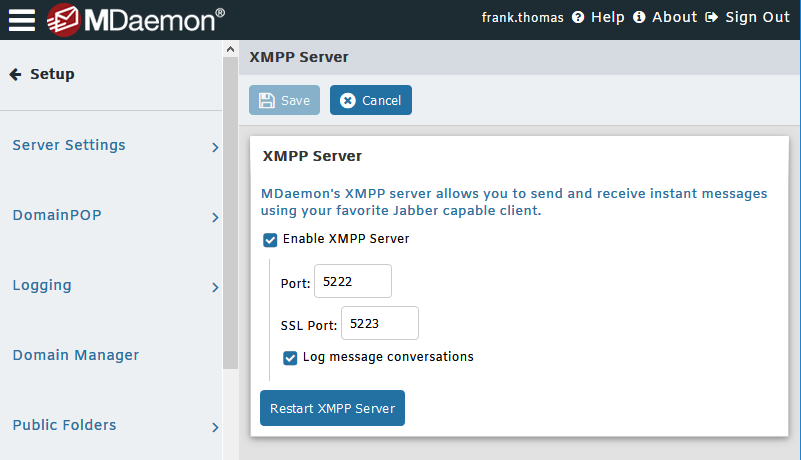
Use Email Encryption in MDaemon Webmail
MDaemon Webmail users can easily send encrypted email messages on-demand from the message compose window.
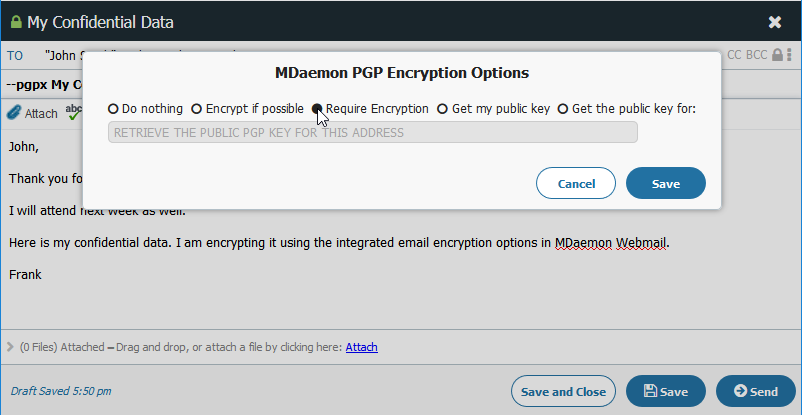
Use two-factor authentication
MDaemon Webmail supports two-factor authentication to protect against password guessing attempts and unauthorized login attempts.
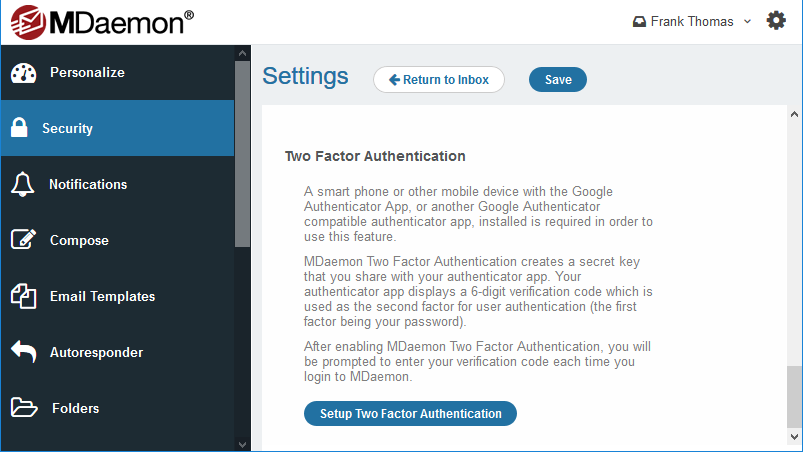
Times are changing
With the rapid shift to remote work, businesses need to stay on top of the latest threats and trends, and this holds especially true for email.


